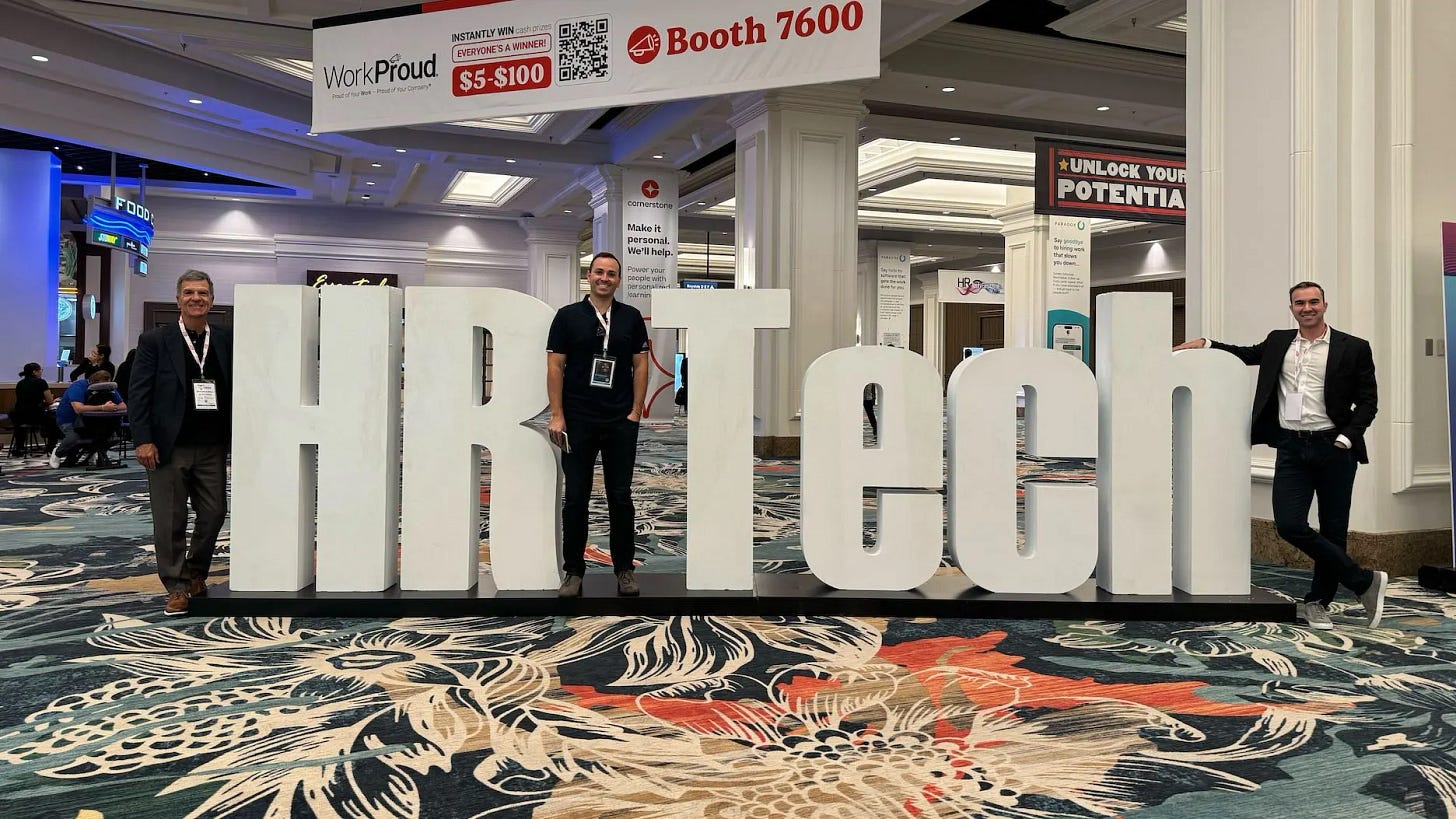Payroll Integrations Raises $20M Series A Led by Ex-Salesforce and UC San Diego Graduate
San Diego-based co-founders previously worked at Salesforce, with ties to UCSD
Learn from San Diego's top entrepreneurs and companies. Every week, I write a newsletter breaking down the business and money in San Diego. Join 1,000+ San Diego tech professionals, entrepreneurs, and investors by subscribing below.
Doug Sabella, an oceanside resident — who formerly served as a product leader at Salesforce in San Francisco — has raised a $20 million Series A round for its software startup called Payroll Integrations.
The company joins several S.D. startups that have made earned headlines for raising major investment in the last month. Other startups include Sidebar ($13M Series A), Debut ($40M Series B), and Shield AI’s ($200M Series F), all startups that won over VCs during a difficult fundraising environment in recent months.
The Series A funding was led by Arthur Ventures, a Minnesota-based growth equity firm that specializes in backing promising B2B software platforms.
Sabella, who co-founded the six-year-old company alongside UC San Diego alum Andrew Hallengren, told me in a Zoom call this past Friday that the fresh capital will go towards new product development and help grow its 30-person team over the next year at a “modest” pace.
“We're not in a rush to hire extensively,” said Sabella. “By the end of 2024, we will be somewhere between 40 and 50 employees. We want to hire the best people for the right positions — not simply hire because we have money to spend.”
High-Level Overview
Founded in 2016, Payroll Integrations is a B2B software-as-a-service company that works to streamlines administrative processes such as 401k benefits and employee financial wellness programs
What makes it special? Payroll Integrations has won over large payroll and human resource legacy players including ADP, Paychex, Empower and Transamerica. It is also the first time the company has raised outside funding.
Payroll Integrations works to provide communication between benefits providers and large enterprise organizations, creating an automated experience for its customers.

The Founding Story
“I was working as a product manager at Salesforce at the time, when my co-founder Andrew Hallengren reached out,” said Sabella, recalling the “aha” moment that led to founding the company.
Hallengren was working as a registered investment advisor working in the benefits space and noticed there was lack of automation in the sector, said Sabella, a former product manager at Salesforce whose team oversaw its B2B marketplace AppExchange.
The duo then raised a small angel round, to build its platform, and credited it's hard earned success to winning over big named clients — one at a time.
Fast forward eight years later, Payroll Integrations established partnerships with the largest payroll companies in the U.S. to provide a direct two-way connection between payroll and benefits automation as an integration platform-as-a-service (iPaaS).
Sabella, described the early days required a lot of hard work upfront. In particular, it implemented a “free trial” which led to more paying customers, said Sabella, noting that they also made several key strategic hires early on.
“It took a ton of relationship building on our side, we hired people who had a deep Rolodex of contacts in the space,” he said. “We slowly built a case over time, on why we would be a good fit. They saw that our product not only worked, but made their lives easier, and saved them a lot of operational expenditure.”

Raising $20 Million Series A
Payroll Integrations works with nine out of ten “largest 401k providers” allowing them to capture nearly 80 percent of the market, serving large companies in the sector which included major clients Paychex and QuickBooks.
Ryan Kruizenga, managing partner at Arthur Ventures, told TechCrunch, his team were searching for a capital efficient startup in the financial technology space that would have high growth in the b2b space — Payroll Integrations was exactly that.
“For a smallish company to be working with the majority of the market in terms of the large companies that they are penetrating, it becomes a really interesting situation as an investor,” said Kruizenga.
“They don’t have to go get hundreds or thousands of more logos, but can work on growing the relationships that they already have,” he said.
The company “tripled revenue” in the past year and reached a milestone of processing 1 million employee benefits annually across more than 4,000 companies. It expects to build on that momentum through several years before exploring exit opportunities, said Sabella.
“Our investors loved our growth. They believe in the core product and liked our founding story, so for me it's a no brainer,” said Sabella. “We didn’t need to go find 10 different investors or VCs to complicate our cap table. We tried to avoid too many cooks in the kitchen mentality.”
What’s Next for Payroll Integrations
Sabella remains optimistic for the venture-backed startup which is now privately valued higher than the $20 million it raised.
“I would love Payroll Integrations to be a company worth north of $100 billion,” said Sebella, but as of right now, “the plan is to scale the company and evaluate potential acquisition offers down the line,” adding that there is no telling what the future holds.
Focused on creating significant value for its customers and investors, Payroll Integrations is currently working on a software development kit to create a more streamlined and automated experience for its users.
It is also building out a platform for compliance with third-party administrators so employers can work with the U.S. Department of Labor and Internal Revenue Service to make sure a benefits plan is in compliance.

Living in North County San Diego
During the last few minutes on our call, I asked what his thought process behind its decision to build the startup in San Diego opposed to San Francisco or Los Angeles.
Similar to others who moved, San Diego offered more affordable housing and better quality of living opposed to the Bay Area, he said.
“My co-founder, Andrew, went to UC San Diego, so that initially kicked off the idea on moving down here,” said Sabella. "Everyone always asks why San Diego?”
“I tell them take a look around, the people are great, we have close proximity to the beach and nature, the list goes on.” Jeff Kayajanian, its chief revenue officer, also resides in Encinitas, who have lived in the area for nearly three decades.
Kayajanian joined the firm roughly two years ago, and has been instrumental in helping establish relationships with payroll providers, advisors, among others.
Hundreds of tech workers, executives, and founders have migrated to the area from S.F. since 2020. Many are moving to small beach towns like Encinitas or Solana Beach, for its ocean views, solid schools and food scene.
“We like North County, it's really hard to complain,” he said.






